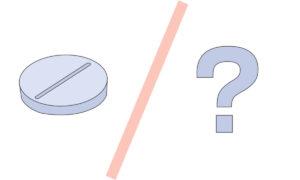While new variants of COVID-19 continue to emerge, some people infected by COVID-19 long ago are still suffering from the effects of “long COVID.” From a traditional Chinese medicine (TCM) perspective, symptoms of long COVID can be quickly alleviated by adjusting the gastrointestinal system. Making simple changes to everyday life can also help to reduce these symptoms.
Postacute sequelae of SARS-CoV-2 infection (PASC), also known as long COVID, refers to the after-effects of COVID-19, where symptoms persist for at least two to three months after the onset of the disease. Common symptoms include brain fog, headaches, coughing, asthma, chest pain, shortness of breath, diarrhea, fatigue, joint pain, and muscle aches. Some people may experience only one symptom, while others may have multiple symptoms.
Treatment for Long COVID
In my experience treating COVID-19 patients, the virus takes about a week to turn a negative test result. However, treating long COVID takes about two to three weeks before symptoms improve.Because of the chronic nature of the disease, most of the patients are weak. I add codonopsis and some medicine that regulates the stomach and intestines during the treatment. These patients will soon get better.
There is a saying in traditional Chinese medicine that “if the nine orifices are blocked, it is all due to gastrointestinal problems.” This means that gastrointestinal problems can cause symptoms such as ear blockage, blurred vision or tearing eyes, and discomfort in the throat. These symptoms are called “blocked nine orifices,” which can be treated by adjusting the gastrointestinal system.
6 Tips to Ease Symptoms of Long COVID
1. Appropriate Exercise
Go for a walk in the countryside or a park, go jogging, or do some gentle exercises. Such exercises can help strengthen the body’s immune system, promote faster recovery, and improve mood.2. Relieve Psychological Stress
Some people experience significant psychological stress after being infected with COVID-19. Suffering from long COVID, patients often worry about their prolonged coughing and whether it will develop into asthma. They also worry about whether brain fog will cause their minds to deteriorate and age or if chest pain indicates a heart problem. These worries increase their psychological stress, making it more difficult to recover from the illness.- Stay informed through reliable sources, communicate openly with health care professionals, and focus on the positive aspects of recovery progress.
- Communicate regularly with friends, family, and support groups through virtual platforms. Virtual mental health support and counseling can also provide an outlet for emotional expression.
- Try mind-body techniques such as deep breathing, meditation, yoga, and progressive muscle relaxation to manage stress and promote overall well-being.






